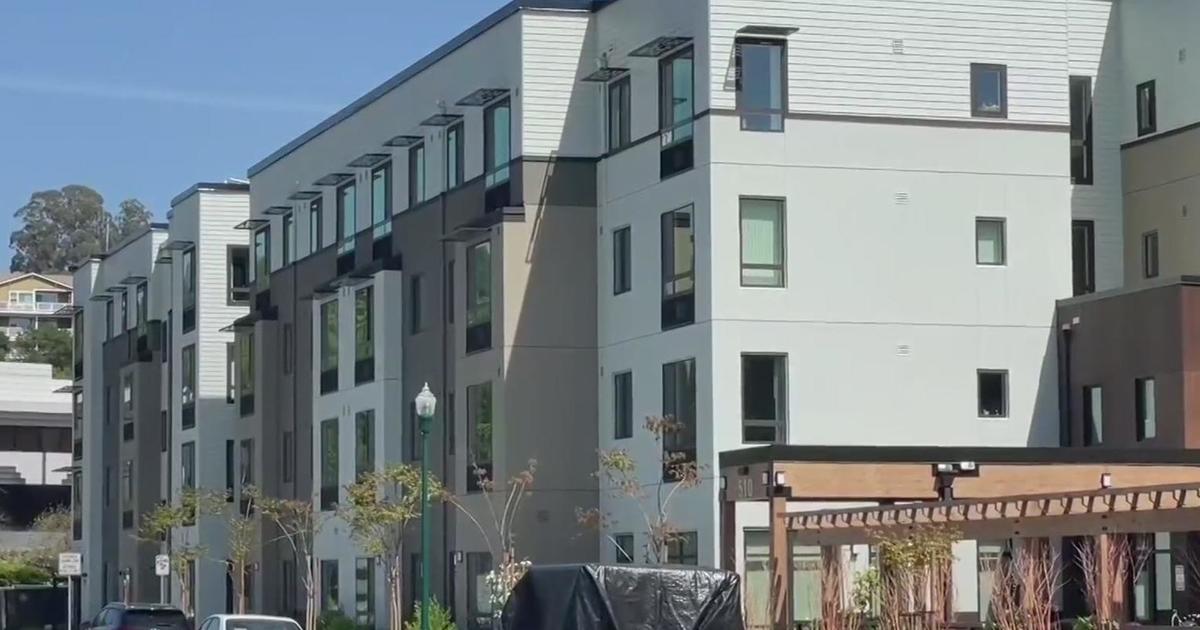Critics Bid To Overturn Approval Of Tahoe Resort Expansion
OLYMPIC VALLEY, Placer County (AP) — Environmental lawyers are urging a California appellate court to overturn a pair of district court rulings that handed significant victories to the Squaw Valley ski resort as it moves forward with expansion plans critics say will dramatically increase traffic in the area and harm Lake Tahoe's air and water quality.
Justice Vance W. Raye, chief of the Third District Court of Appeals, appeared sympathetic to their arguments this week that Placer County may have violated a public records law in approving part of an environmental analysis and mitigation plan at the home of the 1960 Winter Olympics.
The three-member panel didn't offer any clues about its take on Sierra Watch's broader challenge accusing the developer of intentionally failing to adequately assess the effects on the nearby lake and downplayed the potential for dangerous delays during a wildfire evacuation.
A Placer County judge backed the county's handling of both matters in 2018 rulings related to plans approved for the Alterra Mountain Co., Denver-based owner of Squaw Valley. It intends to build 850 units in a series of high-rise condo hotels in what is now the parking lot of the ski resort 6 miles (10 kilometers) north of Lake Tahoe.
Sierra Watch has been fighting the expansion since it first was proposed in 2012 and approved by the Placer County supervisors in 2016.
The group says the developer was required to analyze the effects on the Lake Tahoe Basin — including the alpine lake that holds enough water to cover California a foot deep — even though the resort lies outside the basin itself.
"The project still affects the basin. It's not bound by the project's footprint itself," Sierra Watch attorney Daniel Selmi told the appellate panel Wednesday.
Opponents say the development will double the population of Olympic Valley. They say 40% of the new traffic generated will travel into the basin, increasing the amount of sediment transported to the lake and raising nitrate emissions — two major threats to Tahoe's world-renowned clarity.
Yet the environmental review's 83-page section on hydrology/water quality has a single reference to Lake Tahoe — mentioning the Truckee River runs past the resort downstream from Tahoe, Selmi said.
"That's it — no other reference to Lake Tahoe," he said. "They virtually ignored it."
The county's review concluded the expansion would add an average of 1,353 daily car trips. It acknowledged it could take more than 10 hours to evacuate via the single access road during a wildfire.
Whit Manley, an attorney for Squaw Valley Real Estate who argued the developer's case, said they conducted four years of environmental review on an initial plan to build 1,295 units but scaled that back based on public input to 850.
He said 85% of the expansion is planned on land that's already developed.
"Most of it is a parking lot surrounded by ski runs and bare rock. That is where the development is going to occur. Not in the forest," he told the panel.
Manley acknowledged the area is designated as a severe fire hazard area.
But "that designation in and of itself doesn't mean an impact on evacuations has to be found significant or unavoidable," he said.
In the other case, Sierra Watch maintains the county violated California's Brown Act by failing to comply with the mandate that public documents be made available for public inspection.
It centers on the sudden notice that the county supervisors would vote on a proposal by the developers to pay $440,000 to the state's attorney general for mitigation on other projects in the Tahoe area to offset the effects of increased resort traffic.
Robert Perlmutter, another lawyer for the group, said the sole action the county took was to place a copy in a closed and locked office at 5:42 p.m. the evening before the board of supervisors voted on the matter.
The memo "was not made available in any real sense," he said.
Deputy County Attorney Clayton Cook said the Brown Act, a federal law that governs the release of information to the public, clearly states that if a new document item is added less than 72 hours before a meeting it "should be made available for public inspection" by placing the document in a file in a public office.
"The facts show compliance," he said.
Raye asked if the county truly "made it available even if you have no means to obtain access to it?"
"Yes, that is our position," Cook replied. "To require the county to do something else, would require some other reading" of the statute.
Raye responded: "Is it much of a strain of the statute to interpret that available means what available means? The writing must be accessible. If it's in an office but not accessible to the public, it's not available."
The resort is in the midst of dropping the word "squaw" from its name, amid a national reckoning over racial injustice and inequality.
"We have to accept that as much as we cherish the memories we associate with our resort name, that love does not justify continuing to use a term that is widely accepted to be a racist and sexist slur," resort CEO Ron Cohen said in August of last year.
According to the resort's website, a new name is expected to be revealed in fall.
© Copyright 2021 The Associated Press. All Rights Reserved. This material may not be published, broadcast, rewritten or redistributed.



